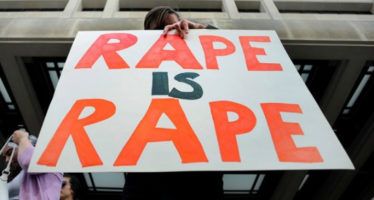Should state hike park fees?
AUG. 11, 2010
By KATY GRIMES
Even with recent hefty park fee hikes, a battle between supporters of state funded parks and anti-tax groups resumed in the Legislature yesterday, over an upcoming ballot initiative that would add $18 to every vehicle registered in the state, in order to fund state parks.
On Tuesday, the Senate Natural Resources and Assembly Water, Parks and Wildlife committees joined together and held a mandatory hearing about Proposition 21, before the ballot proposition could be voted on in November.
More than 100 people attended the hearing wearing green “Yes On 21” t-shirts, in a show of support for the measure. However, not everyone present was supportive of the measure.
The Department of Parks increased fees 100 percent in 2009. In 2008, in exchange for a $10 surcharge on vehicle license fees, Assemblyman John Laird, D-Santa Cruz, proposed to create a State Parks Access Pass, but it did not pass the Senate. In 2009, the Budget Conference Committee voted to eliminate general fund budgeting for state parks and replace it with a new “funding source,” in the form of another State Park Access Pass or Vehicle Park Pass, based on Laird’s 2008 proposed legislation, but it did not make it to the final state budget.
Proposition 21 is similar to Laird’s all-access-pass proposal, and the 2009 proposal, but with a higher vehicle licensing fee.
A representative from the Legislative Analyst’s Office testified that an $18 annual surcharge would be added to vehicle registrations in the state, in order to provide funding for state parks. Owners of vehicles that pay the surcharge would have free admission and parking at all state parks.
If the measure does not pass, state park and wildlife conservation programs would continue to be funded through existing state general fund and local funding sources, according to the LAO. Admission and parking fees could continue to be charged for vehicles entering state parks.
State Parks Director Ruth Coleman testified that the state parks system has been underfunded by more than $120 million annually, causing a horrific backlog of maintenance.
The department has 278 state parks, covering 1.5 million acres of land. The state parks department employs 2,400 full time employees, and 7,500 part time or seasonal workers. The department has more than 20,000 volunteers worth about $21 million, according to Coleman.
Coleman explained that the state used to fund the parks department primarily through the general fund. However, since the 1980s, general fund support for the parks has dropped dramatically, leaving the parks department vulnerable to volatile seasonal revenues.
Critics of the measure say it is a “trick” to bring back the car tax. Michelle Steele, a State Board of Equalization member, and Peter Foy, California Chairman of Americans for Prosperity, filed a rebuttal to Proposition 21, calling the measure “well-intended,” but said it is still a tax.
The measure will still allow for additional fees to be charged in the parks, according to the rebuttal filed by Steele and Foy.
Also critical of the measure is the Howard Jarvis Taxpayers Association. In testimony at the Tuesday hearing, HJTA Legislative Director David Wolfe asked the committees “to be mindful of continuing to increase taxes.” Referring to a “budget shell game,” Wolfe said of the measure, “It’s a tax masquerading as a fee.” Wolfe said that was “reason enough to oppose the measure.”
Assemblyman Jared Huffman, D-San Rafael, addressing Wolfe said, “Whether it is a tax or a fee, it was brought by the people.” Calling it a “fee canard,” Huffman repeated, “the measure was brought by the people.”
“The issue has been defeated before in John Laird’s legislation,” Wolfe replied.
Also appearing at the hearing was Gene Erbin, representing automobile companies. Erbin told the committees that the Legislature has an “insatiable appetite to assess fees on the public,” and said, “vehicle programs are limping along,” while state-funded programs do not. Erbin said, “The CARB program does not limp.”
“Nothing in the bill prohibits more fees,” said Erbin.
The LAO said that $500 million in fees would be collected for the state parks, even with a $50 million loss of day use fees.
Explaining its position on the measure, on the HJTA Web site the association said, “California is already one of the nation’s most overtaxed states with already exorbitant taxes being spent poorly on a wasteful and inefficient state bureaucracy. Opponents point to recent elections where new taxes have been soundly rejected and polls showing that California voters oppose new taxes while believing government is guilty of widespread wasteful spending. Maintenance of state parks is an important government function, but it is one politicians already have the tax revenue to perform if they were able to prioritize and exercise more fiscal restraint and responsibility.”
The “Yes on Prop 21” Web site states, “Twice in the past two years, state parks were on the brink of being shut down. The measure will create a stable source of funding for state parks.”
Director Coleman addressed the consequences of many years of budget cuts to state parks: “We are a chronically underfunded department. The $120 million annual shortfall creates deferred maintenance, and deferred maintenance always costs more.”
Related Articles
AB32 Empowers State Regulators
OCT. 18, 2010 By SUSAN M. TRAGER As we head down the stretch to the November 2 election, Proposition 23
Two bills targeting rape pass Legislature, head to Gov. Brown’s desk
A series of high profile rape accusations led California lawmakers to pass new legislation designed to remove a judge’s discretion in
Four years later, media still spreading the AB 32 Kool-Aid
Nov. 12 By Chris Reed In the Bush 43 era, some pundits on the left took to decrying the media



